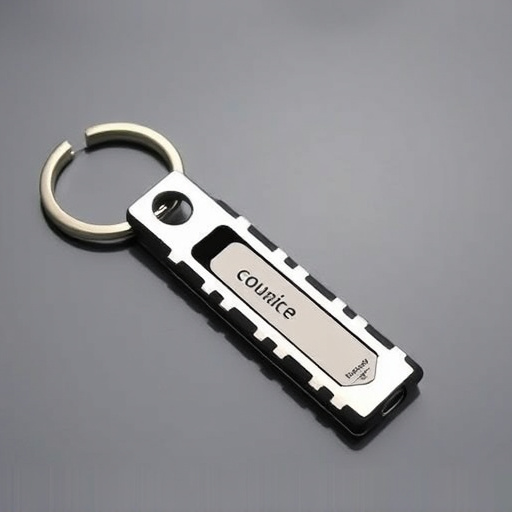Women considering concealable keychain weapons for self-defense must understand varying state laws and regulations. Local rules dictate permit requirements, weapon types allowed (e.g., pepper spray, small stun guns), storage, and carry guidelines. Researching specific state provisions ensures legal compliance and empowers women to protect themselves responsibly in an uncertain world.
“In today’s diverse and dynamic world, self-defense is a vital consideration for everyone, especially women. This article explores the legal landscape surrounding concealable keychain weapons designed for women’s self-protection. We delve into state regulations on keychain weapons, including concealment laws and permit requirements. Additionally, we examine specific rights, weapon types, and safety training, empowering women to make informed decisions about their personal security.”
- Legal Definitions: Keychain Weapons & Self-Defense
- State Regulations: Concealment & Permits
- Women's Rights: Carrying Limits & Exemptions
- Weapon Types: Legal Options for Keychains
- Safety & Training: Responsibly Armed Women
Legal Definitions: Keychain Weapons & Self-Defense
In many jurisdictions, Concealable Keychain Weapons for Women are defined as compact and easily concealable tools designed primarily for self-defense. These devices often take the form of keychains with built-in blades, pepper spray, or other tactical functions. The legal status of such weapons varies from state to state, with some areas prohibiting their possession while others allow them under specific conditions.
Keychain self-defense tools are generally subject to laws governing hidden weapons or concealed carry permits. Some states may classify them as defensive devices if they meet certain criteria, such as size, weight, and functionality. It’s crucial for individuals considering carrying a keychain weapon to understand their state’s legal definitions and requirements, ensuring compliance to avoid potential legal repercussions.
State Regulations: Concealment & Permits
In many states, regulations regarding concealable keychain weapons, often designed for women’s personal safety, are stringent and specific. The legal requirements typically involve permits or licenses for open or concealed carry, with distinct rules governing where and how these compact self-defense tools can be used and stored. Keychain guns, knives, or other similar devices must adhere to state laws regarding size, weight, and functionality.
For instance, some states permit the concealment of certain types of keychain weapons if they meet the definition of a “small firearm” or “pocket pistol.” These regulations often mandate that the weapon be kept in a secure, locked container when not in use and require individuals to undergo safety training and background checks before obtaining a permit. Understanding these state-mandated rules is crucial for women considering self-defense options with concealable keychain weapons.
Women's Rights: Carrying Limits & Exemptions
Many women consider carrying concealed keychain weapons, often in the form of a small, compact self-defense device or stun gun, as a means of enhancing their personal safety, especially in light of growing concerns about gender-based violence and harassment. However, understanding legal requirements is essential before purchasing and carrying such devices.
In many US states, there are specific laws governing the possession and carry of concealed weapons, including keychain self-defense tools. Some states have provisions for women’s rights and allow for exemptions or reduced licensing requirements when it comes to carrying concealable keychain weapons for personal protection. These may include heightened security measures in public places, such as airports or government buildings, where only licensed individuals are permitted to carry certain types of self-defense devices. It’s crucial for women considering this option to research their state’s specific regulations regarding concealed carry permits, age restrictions, and any unique provisions related to gender-based safety concerns.
Weapon Types: Legal Options for Keychains
When considering self-defense keychain options, it’s crucial to understand that not all weapons are created equal in terms of legal requirements. In many jurisdictions, certain types of concealed keychain weapons are permitted for personal protection, especially for women seeking accessible and discreet self-defense tools.
Legal options often include non-lethal devices like pepper spray keychains, which can effectively disable an attacker without causing permanent harm. Some states also allow the carriage of small, concealable stun guns or tasers that fit easily on a keychain. These tools provide a powerful electric shock, temporarily incapacitating the assailant while giving the user time to escape. It’s essential to stay informed about local laws and regulations regarding the types, size, and capacity of self-defense weapons allowed, ensuring compliance with legal requirements for concealment and use.
Safety & Training: Responsibly Armed Women
Staying safe while prioritizing personal security is a fundamental right, especially for women who want to protect themselves in an uncertain world. For those seeking non-lethal yet effective self-defense options, concealable keychain weapons offer a discreet and accessible solution. These compact devices can provide a sense of empowerment and peace of mind when navigating potentially dangerous situations.
Responsibly arming yourself with a concealed keychain weapon requires proper training and understanding of local laws. Investing in reputable self-defense courses specifically tailored for women can equip you with valuable skills, from basic hand-to-hand combat to the safe handling and deployment of your chosen device. Familiarizing yourself with state regulations regarding concealable keychain weapons is paramount; ensuring compliance will protect you from legal repercussions and promote responsible carrying practices.
In navigating the legal landscape of self-defense keychain options, understanding state-specific regulations is paramount, especially regarding concealment and permit requirements. While women have specific carrying limits and exemptions, there are diverse concealable keychain weapons legally available to enhance personal safety. Empowering yourself with proper training ensures responsible arming, enabling you to protect yourself confidently. Remember, knowledge of local laws and the right tools can make a significant difference in your safety and peace of mind.
